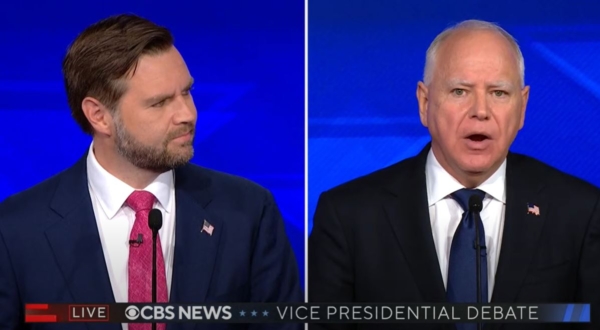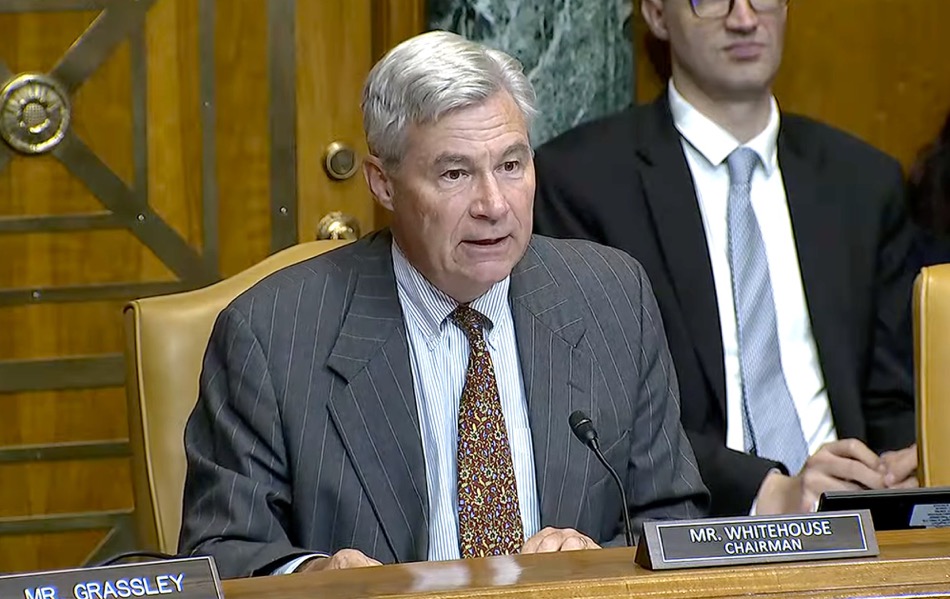2025 Medicare Premium Hike Nothing New, Part of Larger Trend

Medicare beneficiaries will be paying a higher premium for Part B insurance in 2025. Unfortunately, this is nothing new. Medicare premiums have been rising every year for decades now. The 2025 increase, though, is receiving an unusual amount of attention, probably because of the media’s hyper-focus on inflation in general.
Part B premiums will rise 2.7% (or $10.50 per month) for the average beneficiary. This exceeds the 2025 Social Security COLA of 2.5% (which also is not unusual). While seniors on fixed incomes already grappling with higher costs clearly won’t be happy paying an extra $10.50 per month for Medicare, the increase is in keeping with years past and part of a trend.
Health insurance premiums in general have been climbing, driven in part by soaring health care costs. The median increase in private marketplace premiums will be 7% in 2025, while premiums for employer-sponsored plans are expected to rise nine percent. The website Stretch Dollar attributes the spike in premiums to several factors, including:
*Higher labor costs in the health care sector.
*Hospital market consolidation gives insurance companies less negotiating power.
*The growing popularity of expensive specialty drugs like GLP-1 weight loss drugs and new gene therapies.
We don’t need to feel too sorry for the nation’s insurance behemoths, though. Unlike some other Western countries, profit motive is baked into our health coverage system. “All told, America’s biggest health insurers raked in more than $41 billion in profit in 2022,” reported the Penn Capital-Star — a “staggering sum of money” surpassing the GDP of some countries.
Annual premium hikes are to be expected given rising costs and massive inefficiencies in the U.S. health care system. In fact, Axios characterized ours as “one of the most inefficient health care systems among (the world’s) high-income countries.” Axios blames this, in part, on increased intervention in health care decisions by insurance companies (the ‘managed care’ model). “Administrative requirements that insurers sign off on care before it’s delivered… cost time and money.”
Unfortunately, this is the entire modus operandi of Medicare Advantage (MA), the privatized version of Medicare. MA insurers impose “prior authorizations” before patients can get certain treatments and procedures recommended by their doctors, often denying care that the publicly-administered “traditional Medicare” routinely covers. The built-in profit motive of M.A. plans (who receive fixed payments from Medicare for each patient) incentivizes insurers to pay out less for patient care.
The traditional Medicare program is far from perfect, but it is far more efficient at delivering care because it has no profit motive. In fact, traditional Medicare is one of the most efficiently administered health insurance programs. Traditional Medicare’s administrative costs are a scant two percent, while private insurance companies spend some 12-18% of their revenue on overhead.



Fmr. House Speaker Newt Gingrich once said traditional Medicare would “wither on the vine.”
This is not to say that traditional Medicare can’t be improved. The same trends in health care costs that buffet the private markets affect Medicare as well. The Obama and Biden administrations attempted to cut Medicare’s costs without compromising patient care. In fact, the Inflation Reduction Act of 2022 is expected to save the program $6 billion by 2026 by lowering prescription drug costs. This and other Democratic proposals to cut Medicare costs — and increase revenue — will now languish in a second Trump administration with a Republican-controlled Congress.
In fact, the Republican agenda (as laid out in Project 2025) is to undermine traditional Medicare by steering seniors toward for-profit Medicare Advantage plans. If successful, they will have realized Newt Gingrich’s dream of leaving traditional Medicare to “wither on the vine.” Seniors do not deserve that.
Despite the increase in annual premiums, Medicare remains one of the most popular federal programs. According to Kaiser Family Foundation, 90% percent of Medicare beneficiaries rate their coverage positively, including half who say it is “excellent.” We and other advocates will continue to fight for a thriving Medicare program that prioritizes patients over profits.
Our senior health policy expert, Anne Montgomery, explains the choices confronting seniors during this year’s Medicare open enrollment season on the “Your Earned This” podcast. Listen here.



A Bi-partisan Victory for Public Sector Workers & Their Families



The U.S. House voted Tuesday night to repeal two highly unpopular provisions of Social Security law — the WEP (Windfall Elimination Provision) and GPO (Government Pension Offset). These provisions, enacted more than 40 years ago, prevent millions of public sector employees and their families from collecting Social Security benefits. The Social Security Fairness Act, introduced by Rep. Garrett Graves (R-LA) and Rep. Abigail Spanberger (D-VA), would revoke WEP and GPO if passed by the Senate and signed by the president.
NCPSSM has long supported repeal of these provisions and lauded the 327 to 75 House vote. Max Richtman, president and CEO of the National Committee to Preserve Social Security and Medicare, said in a statement:
“Tuesday night’s House vote was a bipartisan victory for public sector employees and their families, who, like all Americans, deserve to collect the benefits they have earned. We urge the U.S. Senate to join the House in approving this bill”. – NCPSSM president and CEO Max Richtman, 11/12/24
In a statement released after their bill prevailed in the House, Reps. Spanberger and Graves referred to the WEP and GPO provisions as “theft” of public employees’ benefits:
“By passing the Social Security Fairness Act, a bipartisan majority of the U.S. House of Representatives showed up for the millions of Americans — police officers, teachers, firefighters, and other local and state public servants — who worked a second job to make ends meet or began a second career to support their families after retiring from public service. – Reps. Abigail Spanberger & Garrett Graves, 11/12/24
Though the bill provides welcome relief to public sector workers, it is not ‘paid for’; the bill includes no new revenue or cuts to cover the cost of expanding benefits. In 2022, Social Security’s chief actuary estimated that the Social Security Fairness act would cost the program some $146 billion. Meanwhile, the Congressional Budget Office analysis of the legislation projected that it would expedite the depletion of the Social Security trust fund reserves by a relatively negligible six months.
Hill-watchers say that the bill’s proponents are pushing Senate Majority Leader Charles Schumer to attach the legislation to a larger, must-pass bill. Proponents reportedly are hoping to avoid the Social Security Fairness Act coming to the Senate floor as a free-standing bill, as it then would be subject to (potentially harmful) amendments.
While NCPSSM endorses the bill, we support the more comprehensive Social Security improvements offered in Rep. John Larson’s Social Security 2100 Act, which includes repeal of WEP and GPO along with increased revenue to cover the costs.
Unions representing public sector employees – from teachers to firefighters – hailed the House passage of the Social Security Fairness Act as a major win for their members. International Association of Firefighters (IAFF) General President Edward A. Kelly said in a statement following the vote, “Now it’s time for Senators to step up and send this bill to the President’s desk.”
Watch Rep. Larson’s impassioned speech about his Social Security 2100 Act on the House floor earlier this week.
In Debate, Walz Reassures Seniors the Democratic Ticket Has Their Backs
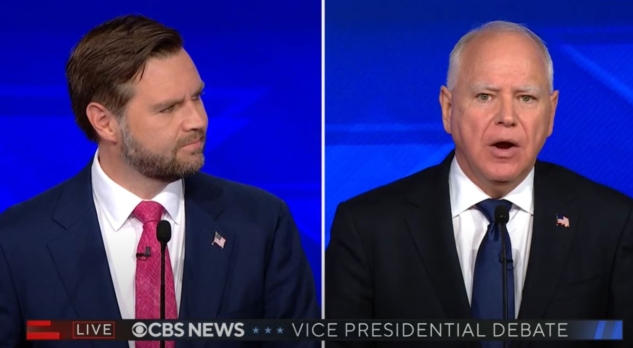


The National Committee to Preserve Social Security and Medicare released this statement at the end of Tuesday’s vice presidential debate:::
Tim Walz was the only one in tonight’s vice presidential debate who sought to reassure older Americans about their health security and medical costs. He touted the Biden-Harris’ administration’s successes in reducing seniors’ prescription drug costs through the Inflation Reduction Act. He noted that the administration “negotiated drug prices with Medicare” for the first time in history.
J.D. Vance was silent on this issue, because Donald Trump has never seriously confronted Big Pharma on behalf of seniors or anyone else.
Walz reaffirmed that Kamala Harris will “protect and enhance” the Affordable Care Act (ACA), which benefits both near seniors and Medicare beneficiaries. He reminded the audience that Donald Trump tried to repeal the ACA and would have succeeded were it not for one no vote by Senator John McCain.
J.D. Vance defended Trump for having nothing but “concepts of a (health care) plan” — and tried to claim that the former president defended the Affordable Care Act when in truth he tried to rip health coverage from millions of Americans.
Little was said or asked about Social Security during the debate, but Vance did mention that his own grandmother benefited from Social Security. Unfortunately, his running mate, Donald Trump, cannot be trusted to preserve seniors’ earned benefits. He once called Social Security a “Ponzi Scheme”; he tried to cut Social Security as president; and earlier this year he said that he’s “open” to “cutting entitlements.”
Tim Walz truly understands the value of Social Security. He has talked about how Social Security kept his family out of poverty when his father passed away when Walz was 19 years old. He and Kamala Harris have consistently pledged to protect Social Security and Medicare from cuts.
The GOP vice presidential candidate did nothing to reassure seniors that a Trump-Vance administration will defend their financial and health security. The record, the facts, and the promises of the Democratic ticket reinforce that Kamala Harris and Tim Walz have the backs of everyday Americans, the middle class, and our nation’s roughly 60 million seniors. – Max Richtman, President & CEO, National Committee to Preserve Social Security and Medicare
Tester Opponent’s Ad Full of Falsehoods on Social Security



The campaign of Montana GOP Senate candidate Tim Sheehy stooped to new lows in a recent ad. In less than 30 seconds, the Koch-funded, billionaire-backed campaign unveiled a series of baseless claims about incumbent Senator Jon Tester’s record on Social Security. Terry Minnow, chair of the Montana seniors’ group Big Sky 55+, excoriated the Sheehy campaign in an open letter published in a local newspaper, demanding that the ad be taken off the air:
“The gross misrepresentations put forth in your ad play political games with (Montana seniors’) livelihoods and their sense of well-being. It is reckless and irresponsible to distress and scare Montanans with patently false information that will bring them anxiety, worry and sleepless nights.” – Terry Minnow, Chair, Big Sky 55+
Let’s take a closer look at the falsehoods in Sheehy’s ad, and where the two candidates really land on Social Security.
Falsehood #1: Jon Tester and other Democrats have “raided” the Social Security trust fund
There are no facts to back up this claim. The trust fund is invested in special U.S. Treasury notes which are repaid to Social Security with interest— just like other government bonds. The trust fund serves a designated purpose, and can only be used to pay for Social Security benefits and administrative costs. Contrary to the popular myth, no one is “raiding” the trust fund or “stealing” from it.
Falsehood #2: Jon Tester supported huge cuts to Social Security
Jon Tester has never supported “huge cuts” to Social Security. He earned a 100% rating on our legislative scorecard two congressional sessions in a row. Lawmakers only receive a 100% rating by consistently supporting Social Security. “I will always defend Medicare and Social Security with all I’ve got,” says Senator Tester. This is why we formally endorsed him in June.
Falsehood #3: Tim Sheehy opposes cuts to Social Security and Medicare
While Jon Tester has always opposed Republican proposals to “sunset” Social Security, Tim Sheehy can’t say the same. Sheehy told a conservative radio host that he agreed with a “mandatory sunset clause in every bill,” leaving Social Security benefits to the whims of politicians year after year. Sheehy, who was endorsed by Donald Trump, has shown he will align with the most extreme members of Congress. Florida Senator Rick Scott, the architect of a plan to sunset Social Security, has endorsed Sheehy and even spent time in Bozeman this summer speaking at his campaign events.
Sheehy has supported GOP efforts to make the Trump tax cuts permanent. This would add nearly $2 trillion to the federal debt. Some Republicans set their sights on Social Security and Medicare to make up the difference. Sheehy himself admits that making the Trump tax cuts permanent could jeopardize Social Security.



NCPSSM president Max Richtman endorses Jon Tester (R) and House candidate Monica Tranel (L) as seniors’ champions in Big Fork, MT
We are hopeful that Montana voters who care about Social Security will see through the falsehoods — and familiarize themselves with where the two candidates truly stand. This past June, NCPSSM President and CEO Max Richtman traveled to Big Fork, Montana to deliver our PAC’s endorsement of Senator Tester. The Senator has received similar endorsements from other seniors’ advocates as well, while Tim Sheehy peddles misinformation on these issues.
Check out this Facebook video from a real Montana Voter! It’s a lot more honest than Sheehy’s ad.



Dems, Republicans Spar on Social Security at Senate Hearing
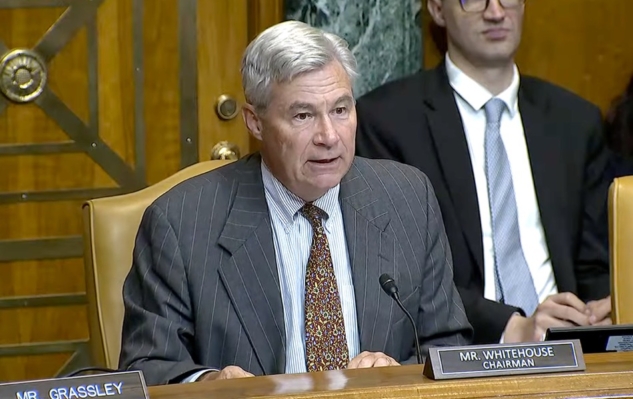


Senate Budget Committee Chairman Sheldon Whitehouse (D-RI)
Senate Budget Committee chairman Sheldon Whitehouse (D-RI) and his colleagues welcomed two panels of witnesses to a hearing on Capitol Hill on September 10th to discuss the future of Social Security. The star witness was Social Security Administration (SSA) Commissioner Martin O’Malley, who took command of the agency in late 2023 pledging to improve customer service.
Democrats at the hearing criticized the House Republican Study Committee 2025 spending plan that would gut Social Security if implemented, cutting benefits for 3 out of 4 Americans. Democratic committee members reiterated their commitment not only to maintaining the solvency of the program’s trust fund (which is projected to become depleted in 2035 without Congressional action), but expanding benefits. Senator Whitehouse expressed frustration with Republicans for failing to support Democratic bills to strengthen the program, while offering no legislation of their own.
“Here’s what I think the plan is for Republicans: Run out the clock until insolvency. Then, when there is a crisis, try to get Democrats into a back room, where Republicans can secretly negotiate benefit cuts, and then bring them out to the public under cover of bipartisanship. That won’t work.” – Senator Sheldon Whitehouse (D-RI)
If that isn’t the plan, Senator Whitehouse challenged Republicans to introduce Social Security legislation — which they haven’t done since 2016. (That bill would have cut benefits by more than 30%). Democrats say that their goal is clear: maintain the financial health of Social Security without cutting benefits — mainly by demanding that high earners begin paying their fair share in payroll contributions. (This is why we a have endorsed Democrats up and down the ballot, including Kamala Harris.)
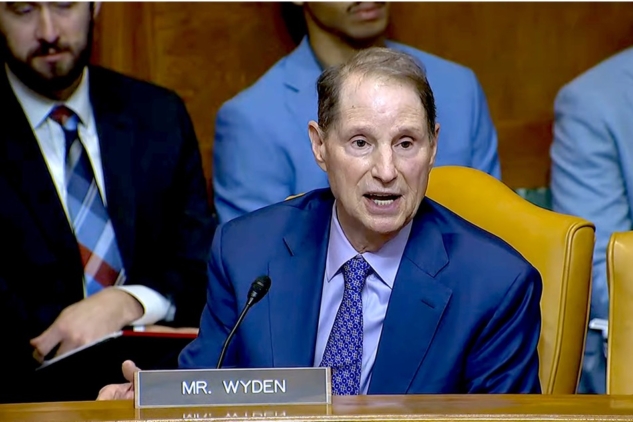


Senator Ron Wyden (D-OR)
“The ultra wealthy are avoiding nearly $2 Trillion in taxes every 10 years. That is enough to keep Social Security whole until the end of this century.” – Senator Ron Wyden (D-OR)
The nation’s nearly 70 million Social Security beneficiaries not only deserve an expanded and strengthened program; they rightly expect proper customer service from the Social Security Administration. Commissioner O’Malley touted the agency’s achievements since he took office, including cutting wait times on the 1-800 phone line and making the process of recovering benefit overpayments less painful for seniors, despite underfunding by the U.S. Congress, resulting in a 50-year low in SSA staffing
“We have now reduced wait times on the 1-800 number by 50%… We have now cleared more cases every week for 12 weeks in a row and have reduced the (appeals backlog for disability claims) to a 30-year low. (But) these recent gains will be short-lived without your immediate attention and support.” – Social Security Administration Commissioner Martin O’Malley, 9/11/24
NCPSSM’s senior Social Security expert, Maria Freese, praised O’Malley’s advocacy for better SSA funding::
With 10,000 Americans turning 65 each day, it’s critical that SSA receive adequate funds each year during the appropriations process. Commissioner O’Malley did a masterful job of explaining the negative consequences that would result if the agency continues to be underfunded. ” – Maria Freese, NCPSSM Senior Policy Advisor
Even so, the commissioner pointed out that a majority of Americans hold favorable views of SSA, especially compared to other parts of the federal government.
O’Malley engaged in a spirited back and forth with Sen. Ron Johnson (R-WI), who did not conceal his disdain for Social Security, calling it a “paternalistic” program with “forced” participation. In 2022, Johnson proposed that Social Security be downgraded from a ‘mandatory’ to a ‘voluntary’ spending program. At this week’s hearing, he advocated raising the retirement age. Like other proponents of this idea, Johnson uses the canard that Americans are “living longer” and shouldn’t be able to collect benefits until age 69 or 70.
Commissioner O’Malley reminded the Senator that many socioeconomically challenged groups face lower life expectancies — and that people in physically demanding jobs may not be able to continue working until their late 60s. (Raising the retirement age would be a huge lifetime benefit cut.)
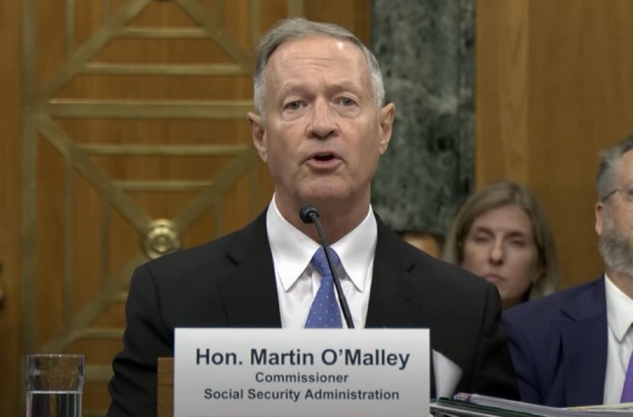


Social Security Administration Commissioner Martin O’Malley
The second panel of witnesses featured Rebecca Vallas, who recently became CEO of the National Academy of Social Insurance. She stressed importance of Social Security benefits to millions of Americans while expressing optimism in legislators’ ability to address looming solvency issues:
“Social Security isn’t just a government program, and it isn’t just a math problem that needs to be solved. It’s a reflection of our shared values as Americans and a commitment that we make to each other. The reason there’s so much bipartisan support and love for this program is that we feel this not just financially, but spiritually” – Ms. Rebecca D. Vallas, CEO of the National Academy of Social Insurance
Several Democrats in the House and Senate have introduced legislation that would strengthen and expand Social Security, but few of these bills have come up for a vote.
Earlier this week, Sen. Brian Schatz (D-HI) introduced a bill endorsed by NCPSSM. Our president and CEO Max Richtman said the legislation will “enhance Social Security for current beneficiaries and future generations.” Democratic Senators Whitehouse and Sanders along with Rep. John Larson and (several others in the House) have introduced their own legislation to improve Social Security without cutting benefits. Some of these bills would expand benefits across the board. Democrats have called on GOP lawmakers to support these commonsense measures, but, as this week’s hearing demonstrates, there is little consensus between the two parties as of now – and perhaps little in sight.
2025 Medicare Premium Hike Nothing New, Part of Larger Trend



Medicare beneficiaries will be paying a higher premium for Part B insurance in 2025. Unfortunately, this is nothing new. Medicare premiums have been rising every year for decades now. The 2025 increase, though, is receiving an unusual amount of attention, probably because of the media’s hyper-focus on inflation in general.
Part B premiums will rise 2.7% (or $10.50 per month) for the average beneficiary. This exceeds the 2025 Social Security COLA of 2.5% (which also is not unusual). While seniors on fixed incomes already grappling with higher costs clearly won’t be happy paying an extra $10.50 per month for Medicare, the increase is in keeping with years past and part of a trend.
Health insurance premiums in general have been climbing, driven in part by soaring health care costs. The median increase in private marketplace premiums will be 7% in 2025, while premiums for employer-sponsored plans are expected to rise nine percent. The website Stretch Dollar attributes the spike in premiums to several factors, including:
*Higher labor costs in the health care sector.
*Hospital market consolidation gives insurance companies less negotiating power.
*The growing popularity of expensive specialty drugs like GLP-1 weight loss drugs and new gene therapies.
We don’t need to feel too sorry for the nation’s insurance behemoths, though. Unlike some other Western countries, profit motive is baked into our health coverage system. “All told, America’s biggest health insurers raked in more than $41 billion in profit in 2022,” reported the Penn Capital-Star — a “staggering sum of money” surpassing the GDP of some countries.
Annual premium hikes are to be expected given rising costs and massive inefficiencies in the U.S. health care system. In fact, Axios characterized ours as “one of the most inefficient health care systems among (the world’s) high-income countries.” Axios blames this, in part, on increased intervention in health care decisions by insurance companies (the ‘managed care’ model). “Administrative requirements that insurers sign off on care before it’s delivered… cost time and money.”
Unfortunately, this is the entire modus operandi of Medicare Advantage (MA), the privatized version of Medicare. MA insurers impose “prior authorizations” before patients can get certain treatments and procedures recommended by their doctors, often denying care that the publicly-administered “traditional Medicare” routinely covers. The built-in profit motive of M.A. plans (who receive fixed payments from Medicare for each patient) incentivizes insurers to pay out less for patient care.
The traditional Medicare program is far from perfect, but it is far more efficient at delivering care because it has no profit motive. In fact, traditional Medicare is one of the most efficiently administered health insurance programs. Traditional Medicare’s administrative costs are a scant two percent, while private insurance companies spend some 12-18% of their revenue on overhead.



Fmr. House Speaker Newt Gingrich once said traditional Medicare would “wither on the vine.”
This is not to say that traditional Medicare can’t be improved. The same trends in health care costs that buffet the private markets affect Medicare as well. The Obama and Biden administrations attempted to cut Medicare’s costs without compromising patient care. In fact, the Inflation Reduction Act of 2022 is expected to save the program $6 billion by 2026 by lowering prescription drug costs. This and other Democratic proposals to cut Medicare costs — and increase revenue — will now languish in a second Trump administration with a Republican-controlled Congress.
In fact, the Republican agenda (as laid out in Project 2025) is to undermine traditional Medicare by steering seniors toward for-profit Medicare Advantage plans. If successful, they will have realized Newt Gingrich’s dream of leaving traditional Medicare to “wither on the vine.” Seniors do not deserve that.
Despite the increase in annual premiums, Medicare remains one of the most popular federal programs. According to Kaiser Family Foundation, 90% percent of Medicare beneficiaries rate their coverage positively, including half who say it is “excellent.” We and other advocates will continue to fight for a thriving Medicare program that prioritizes patients over profits.
Our senior health policy expert, Anne Montgomery, explains the choices confronting seniors during this year’s Medicare open enrollment season on the “Your Earned This” podcast. Listen here.



A Bi-partisan Victory for Public Sector Workers & Their Families



The U.S. House voted Tuesday night to repeal two highly unpopular provisions of Social Security law — the WEP (Windfall Elimination Provision) and GPO (Government Pension Offset). These provisions, enacted more than 40 years ago, prevent millions of public sector employees and their families from collecting Social Security benefits. The Social Security Fairness Act, introduced by Rep. Garrett Graves (R-LA) and Rep. Abigail Spanberger (D-VA), would revoke WEP and GPO if passed by the Senate and signed by the president.
NCPSSM has long supported repeal of these provisions and lauded the 327 to 75 House vote. Max Richtman, president and CEO of the National Committee to Preserve Social Security and Medicare, said in a statement:
“Tuesday night’s House vote was a bipartisan victory for public sector employees and their families, who, like all Americans, deserve to collect the benefits they have earned. We urge the U.S. Senate to join the House in approving this bill”. – NCPSSM president and CEO Max Richtman, 11/12/24
In a statement released after their bill prevailed in the House, Reps. Spanberger and Graves referred to the WEP and GPO provisions as “theft” of public employees’ benefits:
“By passing the Social Security Fairness Act, a bipartisan majority of the U.S. House of Representatives showed up for the millions of Americans — police officers, teachers, firefighters, and other local and state public servants — who worked a second job to make ends meet or began a second career to support their families after retiring from public service. – Reps. Abigail Spanberger & Garrett Graves, 11/12/24
Though the bill provides welcome relief to public sector workers, it is not ‘paid for’; the bill includes no new revenue or cuts to cover the cost of expanding benefits. In 2022, Social Security’s chief actuary estimated that the Social Security Fairness act would cost the program some $146 billion. Meanwhile, the Congressional Budget Office analysis of the legislation projected that it would expedite the depletion of the Social Security trust fund reserves by a relatively negligible six months.
Hill-watchers say that the bill’s proponents are pushing Senate Majority Leader Charles Schumer to attach the legislation to a larger, must-pass bill. Proponents reportedly are hoping to avoid the Social Security Fairness Act coming to the Senate floor as a free-standing bill, as it then would be subject to (potentially harmful) amendments.
While NCPSSM endorses the bill, we support the more comprehensive Social Security improvements offered in Rep. John Larson’s Social Security 2100 Act, which includes repeal of WEP and GPO along with increased revenue to cover the costs.
Unions representing public sector employees – from teachers to firefighters – hailed the House passage of the Social Security Fairness Act as a major win for their members. International Association of Firefighters (IAFF) General President Edward A. Kelly said in a statement following the vote, “Now it’s time for Senators to step up and send this bill to the President’s desk.”
Watch Rep. Larson’s impassioned speech about his Social Security 2100 Act on the House floor earlier this week.
In Debate, Walz Reassures Seniors the Democratic Ticket Has Their Backs



The National Committee to Preserve Social Security and Medicare released this statement at the end of Tuesday’s vice presidential debate:::
Tim Walz was the only one in tonight’s vice presidential debate who sought to reassure older Americans about their health security and medical costs. He touted the Biden-Harris’ administration’s successes in reducing seniors’ prescription drug costs through the Inflation Reduction Act. He noted that the administration “negotiated drug prices with Medicare” for the first time in history.
J.D. Vance was silent on this issue, because Donald Trump has never seriously confronted Big Pharma on behalf of seniors or anyone else.
Walz reaffirmed that Kamala Harris will “protect and enhance” the Affordable Care Act (ACA), which benefits both near seniors and Medicare beneficiaries. He reminded the audience that Donald Trump tried to repeal the ACA and would have succeeded were it not for one no vote by Senator John McCain.
J.D. Vance defended Trump for having nothing but “concepts of a (health care) plan” — and tried to claim that the former president defended the Affordable Care Act when in truth he tried to rip health coverage from millions of Americans.
Little was said or asked about Social Security during the debate, but Vance did mention that his own grandmother benefited from Social Security. Unfortunately, his running mate, Donald Trump, cannot be trusted to preserve seniors’ earned benefits. He once called Social Security a “Ponzi Scheme”; he tried to cut Social Security as president; and earlier this year he said that he’s “open” to “cutting entitlements.”
Tim Walz truly understands the value of Social Security. He has talked about how Social Security kept his family out of poverty when his father passed away when Walz was 19 years old. He and Kamala Harris have consistently pledged to protect Social Security and Medicare from cuts.
The GOP vice presidential candidate did nothing to reassure seniors that a Trump-Vance administration will defend their financial and health security. The record, the facts, and the promises of the Democratic ticket reinforce that Kamala Harris and Tim Walz have the backs of everyday Americans, the middle class, and our nation’s roughly 60 million seniors. – Max Richtman, President & CEO, National Committee to Preserve Social Security and Medicare
Tester Opponent’s Ad Full of Falsehoods on Social Security



The campaign of Montana GOP Senate candidate Tim Sheehy stooped to new lows in a recent ad. In less than 30 seconds, the Koch-funded, billionaire-backed campaign unveiled a series of baseless claims about incumbent Senator Jon Tester’s record on Social Security. Terry Minnow, chair of the Montana seniors’ group Big Sky 55+, excoriated the Sheehy campaign in an open letter published in a local newspaper, demanding that the ad be taken off the air:
“The gross misrepresentations put forth in your ad play political games with (Montana seniors’) livelihoods and their sense of well-being. It is reckless and irresponsible to distress and scare Montanans with patently false information that will bring them anxiety, worry and sleepless nights.” – Terry Minnow, Chair, Big Sky 55+
Let’s take a closer look at the falsehoods in Sheehy’s ad, and where the two candidates really land on Social Security.
Falsehood #1: Jon Tester and other Democrats have “raided” the Social Security trust fund
There are no facts to back up this claim. The trust fund is invested in special U.S. Treasury notes which are repaid to Social Security with interest— just like other government bonds. The trust fund serves a designated purpose, and can only be used to pay for Social Security benefits and administrative costs. Contrary to the popular myth, no one is “raiding” the trust fund or “stealing” from it.
Falsehood #2: Jon Tester supported huge cuts to Social Security
Jon Tester has never supported “huge cuts” to Social Security. He earned a 100% rating on our legislative scorecard two congressional sessions in a row. Lawmakers only receive a 100% rating by consistently supporting Social Security. “I will always defend Medicare and Social Security with all I’ve got,” says Senator Tester. This is why we formally endorsed him in June.
Falsehood #3: Tim Sheehy opposes cuts to Social Security and Medicare
While Jon Tester has always opposed Republican proposals to “sunset” Social Security, Tim Sheehy can’t say the same. Sheehy told a conservative radio host that he agreed with a “mandatory sunset clause in every bill,” leaving Social Security benefits to the whims of politicians year after year. Sheehy, who was endorsed by Donald Trump, has shown he will align with the most extreme members of Congress. Florida Senator Rick Scott, the architect of a plan to sunset Social Security, has endorsed Sheehy and even spent time in Bozeman this summer speaking at his campaign events.
Sheehy has supported GOP efforts to make the Trump tax cuts permanent. This would add nearly $2 trillion to the federal debt. Some Republicans set their sights on Social Security and Medicare to make up the difference. Sheehy himself admits that making the Trump tax cuts permanent could jeopardize Social Security.



NCPSSM president Max Richtman endorses Jon Tester (R) and House candidate Monica Tranel (L) as seniors’ champions in Big Fork, MT
We are hopeful that Montana voters who care about Social Security will see through the falsehoods — and familiarize themselves with where the two candidates truly stand. This past June, NCPSSM President and CEO Max Richtman traveled to Big Fork, Montana to deliver our PAC’s endorsement of Senator Tester. The Senator has received similar endorsements from other seniors’ advocates as well, while Tim Sheehy peddles misinformation on these issues.
Check out this Facebook video from a real Montana Voter! It’s a lot more honest than Sheehy’s ad.



Dems, Republicans Spar on Social Security at Senate Hearing



Senate Budget Committee Chairman Sheldon Whitehouse (D-RI)
Senate Budget Committee chairman Sheldon Whitehouse (D-RI) and his colleagues welcomed two panels of witnesses to a hearing on Capitol Hill on September 10th to discuss the future of Social Security. The star witness was Social Security Administration (SSA) Commissioner Martin O’Malley, who took command of the agency in late 2023 pledging to improve customer service.
Democrats at the hearing criticized the House Republican Study Committee 2025 spending plan that would gut Social Security if implemented, cutting benefits for 3 out of 4 Americans. Democratic committee members reiterated their commitment not only to maintaining the solvency of the program’s trust fund (which is projected to become depleted in 2035 without Congressional action), but expanding benefits. Senator Whitehouse expressed frustration with Republicans for failing to support Democratic bills to strengthen the program, while offering no legislation of their own.
“Here’s what I think the plan is for Republicans: Run out the clock until insolvency. Then, when there is a crisis, try to get Democrats into a back room, where Republicans can secretly negotiate benefit cuts, and then bring them out to the public under cover of bipartisanship. That won’t work.” – Senator Sheldon Whitehouse (D-RI)
If that isn’t the plan, Senator Whitehouse challenged Republicans to introduce Social Security legislation — which they haven’t done since 2016. (That bill would have cut benefits by more than 30%). Democrats say that their goal is clear: maintain the financial health of Social Security without cutting benefits — mainly by demanding that high earners begin paying their fair share in payroll contributions. (This is why we a have endorsed Democrats up and down the ballot, including Kamala Harris.)



Senator Ron Wyden (D-OR)
“The ultra wealthy are avoiding nearly $2 Trillion in taxes every 10 years. That is enough to keep Social Security whole until the end of this century.” – Senator Ron Wyden (D-OR)
The nation’s nearly 70 million Social Security beneficiaries not only deserve an expanded and strengthened program; they rightly expect proper customer service from the Social Security Administration. Commissioner O’Malley touted the agency’s achievements since he took office, including cutting wait times on the 1-800 phone line and making the process of recovering benefit overpayments less painful for seniors, despite underfunding by the U.S. Congress, resulting in a 50-year low in SSA staffing
“We have now reduced wait times on the 1-800 number by 50%… We have now cleared more cases every week for 12 weeks in a row and have reduced the (appeals backlog for disability claims) to a 30-year low. (But) these recent gains will be short-lived without your immediate attention and support.” – Social Security Administration Commissioner Martin O’Malley, 9/11/24
NCPSSM’s senior Social Security expert, Maria Freese, praised O’Malley’s advocacy for better SSA funding::
With 10,000 Americans turning 65 each day, it’s critical that SSA receive adequate funds each year during the appropriations process. Commissioner O’Malley did a masterful job of explaining the negative consequences that would result if the agency continues to be underfunded. ” – Maria Freese, NCPSSM Senior Policy Advisor
Even so, the commissioner pointed out that a majority of Americans hold favorable views of SSA, especially compared to other parts of the federal government.
O’Malley engaged in a spirited back and forth with Sen. Ron Johnson (R-WI), who did not conceal his disdain for Social Security, calling it a “paternalistic” program with “forced” participation. In 2022, Johnson proposed that Social Security be downgraded from a ‘mandatory’ to a ‘voluntary’ spending program. At this week’s hearing, he advocated raising the retirement age. Like other proponents of this idea, Johnson uses the canard that Americans are “living longer” and shouldn’t be able to collect benefits until age 69 or 70.
Commissioner O’Malley reminded the Senator that many socioeconomically challenged groups face lower life expectancies — and that people in physically demanding jobs may not be able to continue working until their late 60s. (Raising the retirement age would be a huge lifetime benefit cut.)



Social Security Administration Commissioner Martin O’Malley
The second panel of witnesses featured Rebecca Vallas, who recently became CEO of the National Academy of Social Insurance. She stressed importance of Social Security benefits to millions of Americans while expressing optimism in legislators’ ability to address looming solvency issues:
“Social Security isn’t just a government program, and it isn’t just a math problem that needs to be solved. It’s a reflection of our shared values as Americans and a commitment that we make to each other. The reason there’s so much bipartisan support and love for this program is that we feel this not just financially, but spiritually” – Ms. Rebecca D. Vallas, CEO of the National Academy of Social Insurance
Several Democrats in the House and Senate have introduced legislation that would strengthen and expand Social Security, but few of these bills have come up for a vote.
Earlier this week, Sen. Brian Schatz (D-HI) introduced a bill endorsed by NCPSSM. Our president and CEO Max Richtman said the legislation will “enhance Social Security for current beneficiaries and future generations.” Democratic Senators Whitehouse and Sanders along with Rep. John Larson and (several others in the House) have introduced their own legislation to improve Social Security without cutting benefits. Some of these bills would expand benefits across the board. Democrats have called on GOP lawmakers to support these commonsense measures, but, as this week’s hearing demonstrates, there is little consensus between the two parties as of now – and perhaps little in sight.





